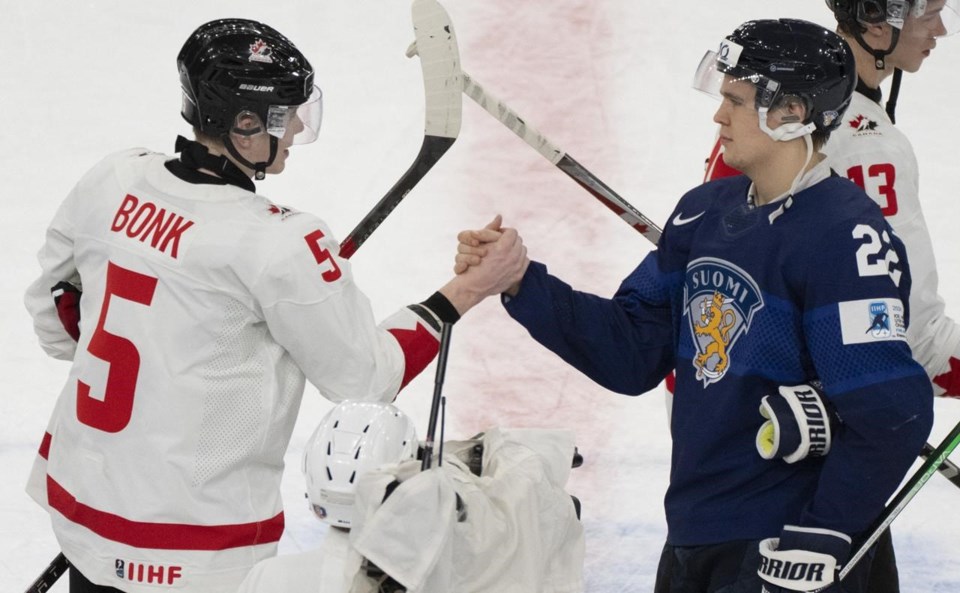ST. JOHN'S, N.L. — Some hockey teams in western Newfoundland continue to line up for end-of-game handshakes, despite a decree from officials to end the practice because it sometimes led to altercations.
Brock Seaward, president of the Port aux Basques Minor Hockey Association, said Wednesday that 12 hockey games have ended with the forbidden handshake in western Newfoundland since the season resumed this month after the Christmas break. That's about one fifth of the total games that have been played, he said, noting that there were a few tournaments in the region.
Players and coaches see end-of-game handshakes as a long-standing, important tradition in hockey that help teach sportsmanship, and some are having a hard time giving them up, Seaward said.
"I am getting a lot of questions from our coaches. It's almost like they're looking over their shoulder and they're saying, 'So, what is going to happen if we shake hands?'" he said. "I don't have an answer to that question."
Last month, Hockey NL, the governing body for amateur hockey in Newfoundland and Labrador, announced that post-game handshakes would be no longer be allowed, citing "issues" that had led to suspensions for some coaches and players. The move raised eyebrows across the country, and drew criticism from some parents, coaches and players, including some at the world junior hockey championship in Sweden.
Hockey NL since revised its stance, saying the ban would not apply to its female division and that handshakes would be moved to the beginning of the game. A Jan. 5 post on its website says the ban will apply only to teams with players between nine and 17 years of age. Officials can also permit post-game stick salutes at their discretion.
All violations of the rule must be recorded and reported to Hockey NL, the post said.
"The decision was made with a view to reducing the risk and improving safety for all members while continuing to acknowledge the importance of sportsmanship in the game," it said. "We welcome feedback on this practice change and look forward to reviewing the information garnered from this trial once it has been compiled at the end of the season."
A post in December said the change was suggested after a fight broke out during a handshake.
Seaward said he hasn't seen any handshake altercations during his long involvement in hockey, either as a father of hockey players or as an executive, but he has heard about such incidents.
Though the handshake ban has been controversial, Hockey NL is trying to do its best to prioritize and protect player safety, he added. He said a stick salute may well accomplish what the handshake is supposed to: instil a sense of sportsmanship, and help the players leave their conflicts on the ice. But as a player, parent and lifelong fan, he wondered if there was a better way to protect players and maintain good behaviour.
"If player safety is at risk, perhaps we need to look at really stiff penalties or sanctions against a team, or against the players that are involved ... to show these types of crappy acts at the end of the handshake line are just not going to be tolerated," he said.
This report by The Canadian Press was first published Jan. 11, 2024.
The Canadian Press



